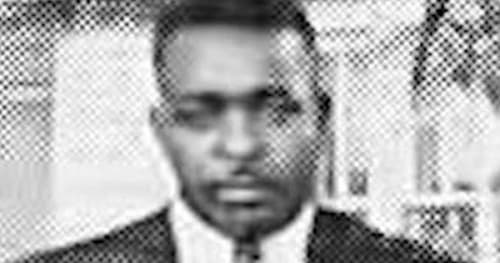Brownsville, Tenn. (June 21, 2015)– Hundreds come to pay tribute to the memorial of Elbert Williams, the first known NAACP member to be murdered in struggle of civil rights .
President of the NAACP Dr. Cornell William Brooks was the key note speaker
75 years after his death Civil rights leader Elbert Williams was remembered
“Every generation has its leaders, but every generation of leaders borrows from the generation before it.,” Dr. Brooks said.
Elbert Williams Memorial committee members and family unveiled a historical marker downtown Brownsville in Williams’ honor. The marker tells Williams’ story, including his attempts 75 years ago to secretly organize the Brownsville TN NAACP chapter to help black voters.
According to historians his plan was overheard. He was kidnapped and killed.
In 1939 the Williamses became charter members of Brownsville’s NAACP Branch.
On May 6, 1940, five members of Brownsville’s NAACP Branch unsuccessfully attempted to register to vote. No African American had been allowed to register to vote in Haywood County during the 20th Century. The next day, the threats began.
Early on the morning of June 16, would-be registrant Elisha Davis was abducted from home by a white mob led by Brownsville policemen Tip Hunter and Charles Read, taken to a nearby swamp, surrounded, and threatened with death unless he named members of the Brownsville NAACP. After naming some, Davis was forced to immediately leave the county, under threat of death should he ever return. Many African American families fled. The Williamses did not.
Late on the night of June 20, policemen Hunter and Read, and a third man, Ed Lee, manager of the local Coca-Cola bottling company, took Williams from his home and jailed him. There they questioned him about an NAACP meeting he was suspected of planning. Hunter claimed that he released Williams who never returned home, and was never again seen alive.
Three days later, Williams’ corpse was found floating in the nearby Hatchie River. Annie Williams identified her husband’s body, and saw two bullet-like holes in his chest. The Coroner ordered no medical examination, and held his inquest on the riverbank that same morning. The Coroner’s jury’s verdict was “Cause of death: unknown.” The Coroner ordered an immediate burial and Williams was buried the same day in an unmarked grave.
A local grand jury found that Williams’ death was caused by “foul violence at the hands of parties unknown.”
Under pressure from the NAACP National Office, the United States Department of Justice (DOJ) ordered the Federal Bureau of Investigation (FBI) to investigate, and promised a broad inquiry.
NAACP Special Counsel Thurgood Marshall, later a United States Supreme Court Justice, monitored the DOJ/FBI investigation, and travelled to Brownsville to collect evidence.
The DOJ ordered the United States Attorney in Memphis to present the case to a Federal Grand Jury, but then reversed its decision and closed the case, citing insufficient evidence. Thurgood Marshall was livid, but unable to get the case reopened.
Elbert Williams’ murderer has never been prosecuted.
Follow @KeithSherley
Sources:
Patricia Sullivan, Lift Every Voice, The NAACP and the Making of the Civil Rights Movement (New York: The New Press, 2009); Richard A. Couto, Lifting the Veil, A Political History of Struggles for Emancipation (Knoxville: The University of Tennessee Press, 1993); Raye Springfield, The Legacy of Tamar, Courage and Faith in an African American Family (Knoxville: University of Tennessee Press, 2000
















